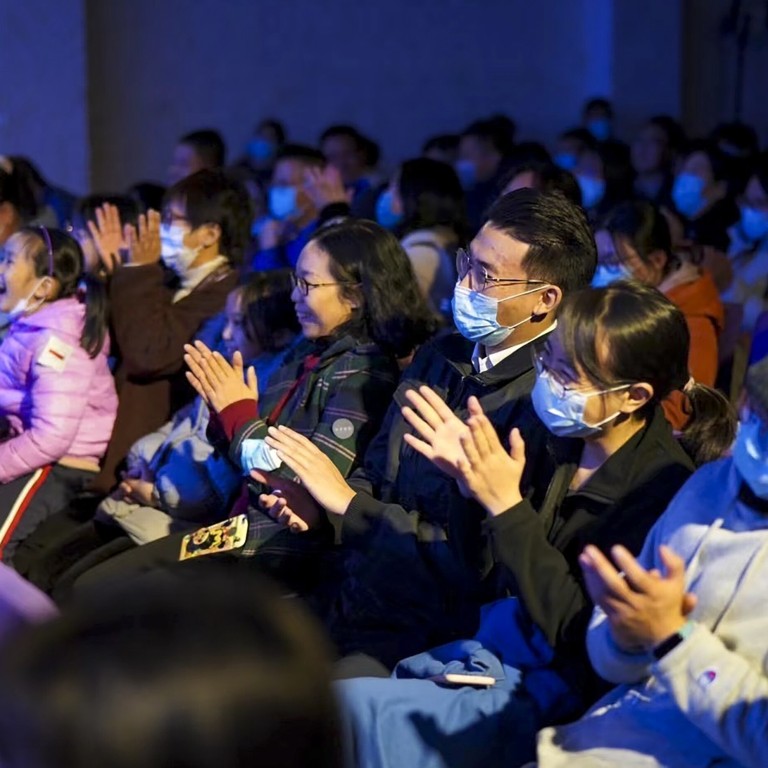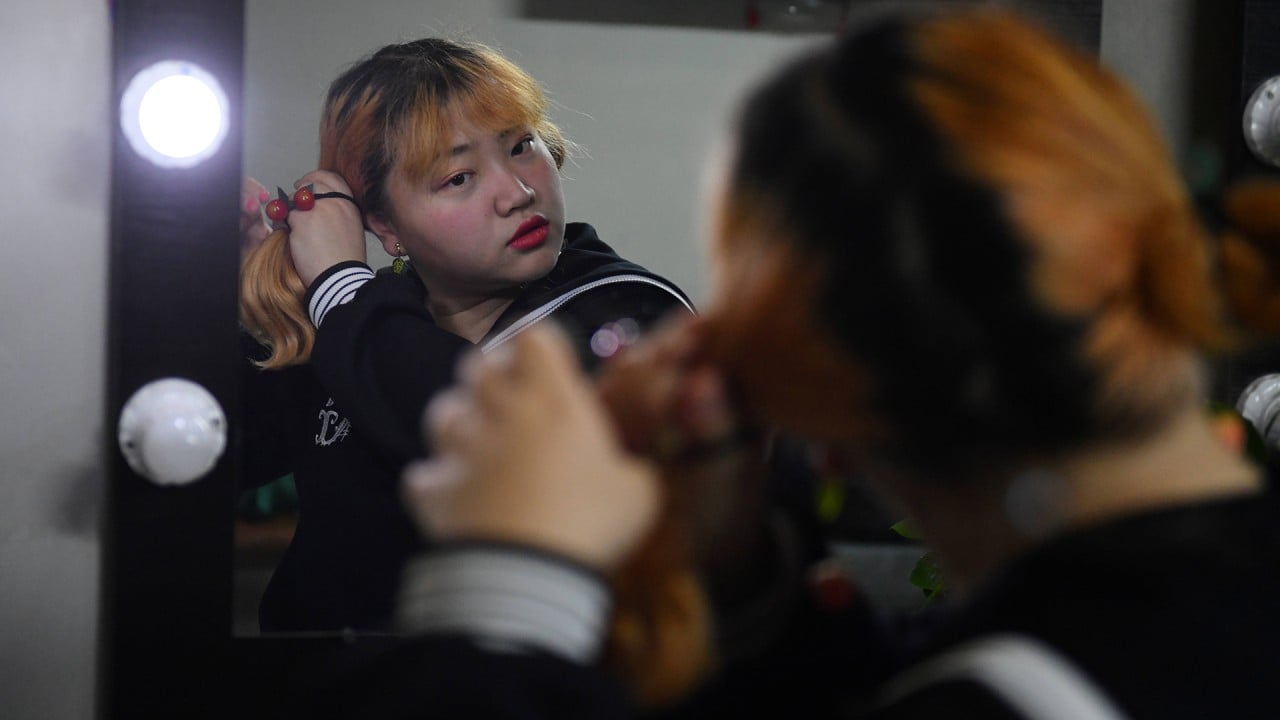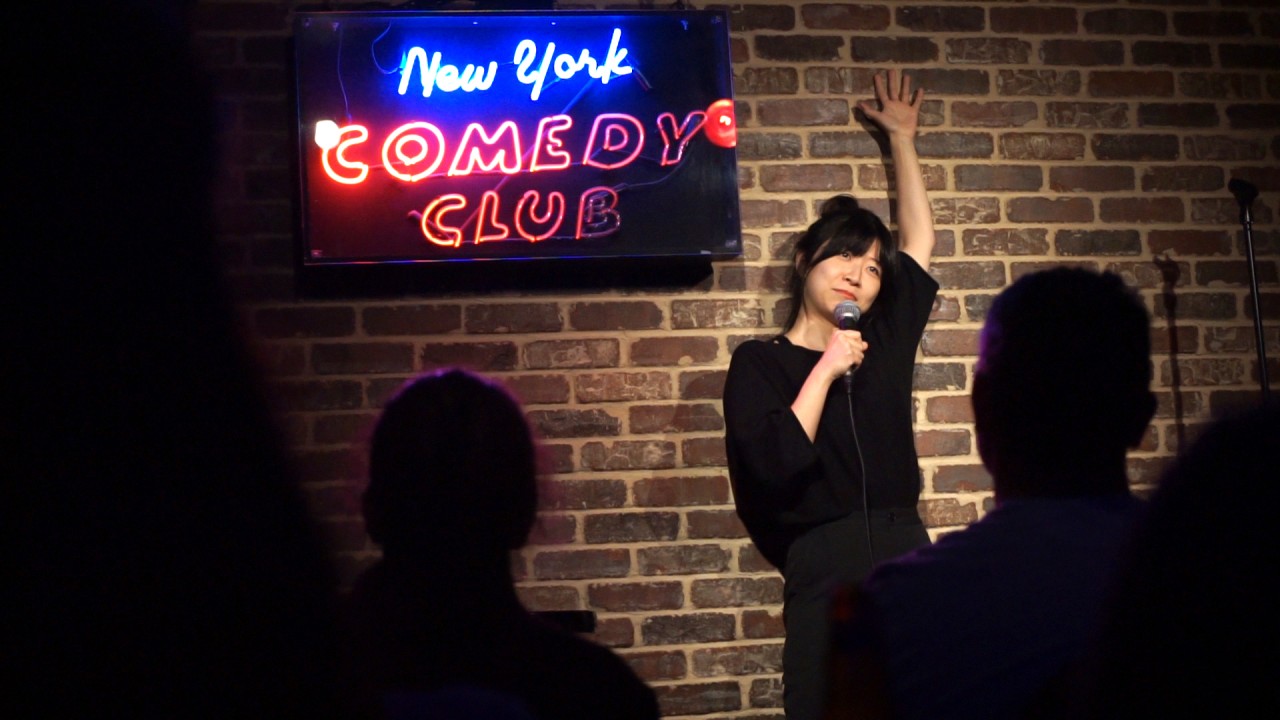
Why Chinese giants JD.com, Didi, Meituan are turning to stand-up comedy to reach Gen Z and millennials
- Some of China’s biggest companies are targeting increasingly discerning millennial and Generation Z consumers with virtual comedy events
- The corporate embrace of stand-up is helping China’s burgeoning comedy scene, with open mic nights flourishing across the country
A laugh is good not only for the soul, but also for business, as many Chinese companies are finding out.
Over the past several years, a growing number of businesses have hit on a novel advertising method to reach younger customers and create a buzz around their brands – producing tailor-made stand-up comedy shows.
Following its success, other internet giants, including Suning and Alibaba – which owns the South China Morning Post – started adding comedy events to an advertising arsenal that had previously focused on TV, variety shows and films.
“They are turning to stand-up comedy because it is becoming popular and better represents the tastes and opinions of Chinese youth about consumption, life and society,” said Linus Guan, an independent comedy writer and producer.
The corporate embrace of stand-up has also given a shot in the arm to China’s burgeoning comedy scene. Open mic nights are booming across the country and professional comedians are now charging triple the rates to perform as they did several years ago.
“Popular stand-up comics are asking for up to one million yuan (US$155,000) for a single appearance, up from about 300,000 yuan a couple years ago,” Guan said.
If you watch the latest shows, especially offline comedy venues, you can get a good understanding of what young Chinese people think
“Including expenses of tens of millions of yuan for publicity and promotion, a 45-60-minute show will cost a total of 30 million. But even at this price, brands in various industries are still rushing in.”
While live-streaming stand-up has thrived in recent years – particularly during the coronavirus pandemic – traditional comedy clubs are also prospering in Chinese cities, attracting a growing number of young white-collar workers and students keen to laugh about contemporary social issues.
“Last year, a stand-up comic had the opportunity for four or five regular shows a month,” said Liang Xiaozhi, a veteran comic and founder of the Greater Bay Club based in the southern Chinese city of Dongguan.
“This year I have had at least 16 and up to 30 shows a month across the country due to high demand.”

02:07
China’s new wave of young women stand-up comedians tackle stereotypes
While a good laugh may be the perfect antidote to the hardships stirred up by the pandemic over the past 18 months, Chinese comedians have to choose their jokes wisely, thanks to the government’s pervasive restrictions on freedom of expression.
Politics and an ever-increasing number of topics are off limits, but anxiety about young people’s life prospects, careers, China’s wealth gap and gender relations are ripe to be mined for laughs. Comedy club audiences are mostly born after 1980 and about 10 per cent are born in the noughties, said Liang.
“If you watch the latest shows, especially offline comedy venues, you can get a good understanding of what young Chinese people think about their society and country,” Guan said. “But you have to do it quickly, because soon after there will be official restrictions banning these topics.”
Everyone in the industry is racing to stay ahead of new taboos
“China has restricted comedy and our industry insiders need to play the game well within the authorities’ boundaries,” Liang said.
The expanding list of censored topics has also created risks for investors and sponsors, who are trying to find issues that resonate with youthful audiences before they are banned.
“Everyone in the industry is racing to stay ahead of new taboos and broadcast as quickly as they can so young customers will laugh and consume,” said Wendy Wu, an independent online content producer in Shenzhen.
Wu gave the example of an online stand-up show, which is sponsored by a leading social media platform and scheduled to run next week, by one of China’s top female comedians

03:10
Norah Yang: introducing stand-up comedy to China
The 30-minute performance by Li Xueqin cost the sponsor more than 10 million yuan to put on, with the original theme: “society is too involuted, should we lie flat?”
“A few minutes before they were ready to begin taping, authorities ordered the producers to change all references to ‘involution’ to ‘too tired’,” she said.
“Then in post-production, another order came in banning mention of ‘lying flat’.
“In the end, it cost the investor a huge amount of money and might not be funny at all.”

